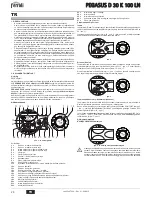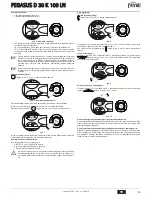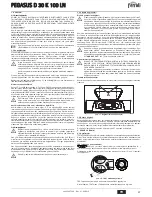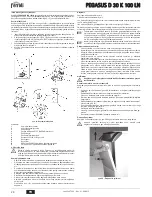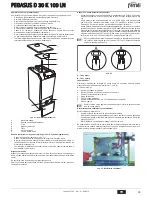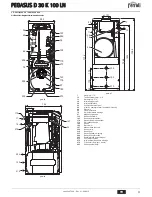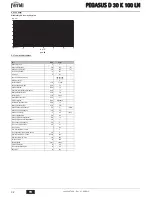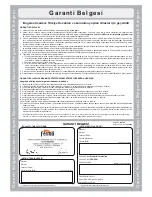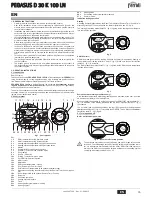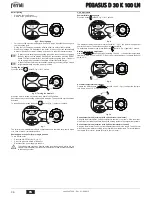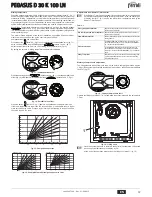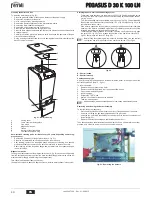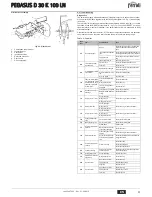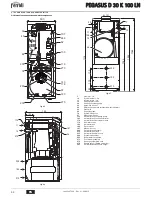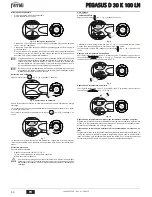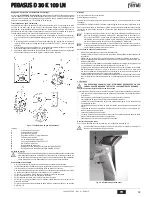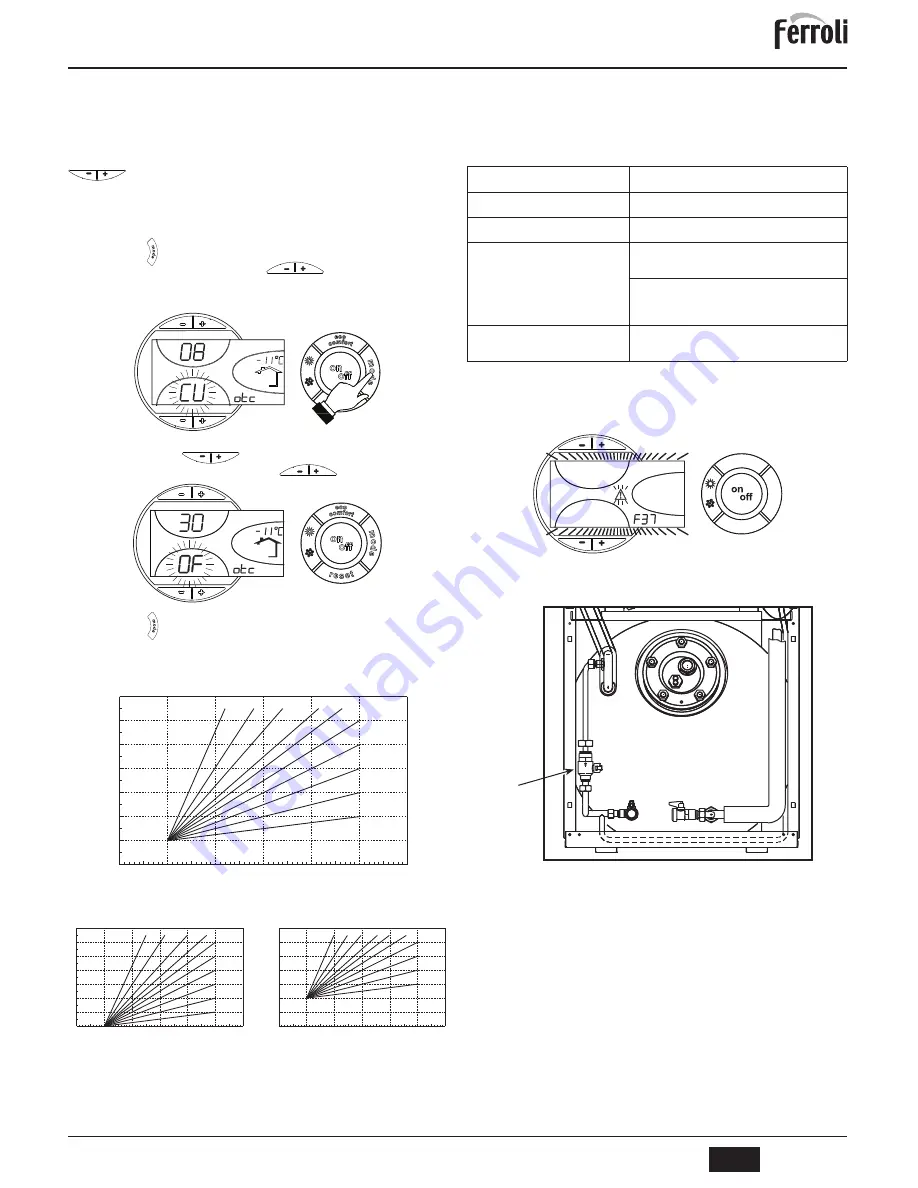
PEGASUS D 30 K 100 LN
37
EN
Sliding Temperature
When the optional external probe is installed the control panel display (detail 5 - fig. 1)
shows the actual outside temperature read by the probe. The boiler control system op-
erates with "Sliding Temperature”. In this mode, the temperature of the heating system
is controlled according to the outside weather conditions, to ensure high comfort and en-
ergy saving throughout the year. In particular, as the outside temperature increases the
system delivery temperature decreases according to a specific "compensation curve”.
With Sliding Temperature adjustment, the temperature set with the heating buttons
(details 3 and 4 - fig. 1) becomes the maximum system delivery tempera-
ture. It is advisable to set the maximum value to allow system adjustment throughout its
useful operating range.
The boiler must be adjusted at the time of installation by qualified personnel. Adjust-
ments can in any case be made by the user to improve comfort.
Compensation curve and curve offset
Press the button
(detail 10 - fig. 1) once to display the compensation curve (fig. 11),
which can be modified with the DHW buttons
(details 1 and 2 - fig. 1).
Adjust the required curve from 1 to 10 according to the characteristic (fig. 13).
By setting the curve to 0, sliding temperature adjustment is disabled.
fig. 11 - Compensation curve
Press the heating buttons
(details 3 and 4 - fig. 1) to access parallel curve
offset (fig. 14), modifiable with the DHW buttons
(details 1 and 2 - fig. 1).
fig. 12 - Parallel curve offset
Press the button
(detail 10 - fig. 1) again to exit parallel curve adjustment mode.
If the room temperature is lower than the required value, it is advisable to set a higher
order curve and vice versa. Proceed by increasing or decreasing in steps of one and
check the result in the room.
fig. 13 - Compensation curves
fig. 14 - Example of parallel compensation curve shift
Adjustments from Remote Timer Control
A
If the Remote Timer Control (optional) is connected to the boiler, the above ad-
justments are managed according to that given in table 1. Also, the control pan-
el display (detail 5 - fig. 1) shows the actual room temperature read by the
Remote Timer Control.
Table. 1
Water system pressure adjustment
The filling pressure with system cold, read on the boiler water gauge, must be approx.
1.0 bar. If the system pressure falls to values below minimum, the boiler card will activate
fault F37 (fig. 15).
fig. 15 - Low system pressure fault
Operate the filling cock (detail 1 - fig. 16) and bring the system pressure to a value above
1.0 bar.
fig. 16 - Filling cock
A
Once the system pressure is restored, the boiler will activate the 120-second
air venting cycle indicated on the display by FH.
At the end of the operation always close the filling cock (detail 1 - fig. 16)
20
30
40
50
60
70
80
90
85
20
10
0
-10
-20
1
2
3
4
5
6
8
9
10
7
20
30
40
50
60
70
80
90
85
20
10
0
-10
-20
1
2
3
4
5
6
8
9
10
7
20
10
0
-10
-20
20
30
40
50
60
70
80
90
85
1
2
3
4
5
6
8
9
10
7
OFFSET = 20
OFFSET = 40
Heating temperature adjustment
Adjustment can be made from the Remote Timer Control menu
and the boiler control panel.
Domestic hot water temperature adjustment
Adjustment can be made from the Remote Timer Control menu
and the boiler control panel.
Summer/Winter switchover
Summer mode has priority over a possible Remote Timer Control
heating demand.
Eco/Comfort selection
On disabling DHW from the Remote Timer Control menu, the
boiler selects the Economy mode. In this condition, the
button 7
-
fig. 1 on the boiler panel is disabled.
On enabling DHW from the Remote Timer Control menu, the
boiler selects the Comfort mode. In this condition it is possible
select one of the two modes with the
button 7
- fig. 1 on the boiler
panel.
Sliding Temperature
Both the Remote Timer Control and the boiler card manage Slid-
ing Temperature adjustment: of the two, the boiler card Sliding
Temperature has priority.
eco
comfort
m
od
e
r e s e t
1
cod. 3540T306 - Rev. 01 - 02/2015


